Nigeria Election Violence Tracker
Situation Summary:
1-14 February 2023
16 February 2023
Summary
Factional infighting continued to dominate Nigeria’s political landscape over the past two weeks as the country approaches the 25 February elections. Socio-economic considerations came to the fore in response to the Central Bank’s directive to exchange old Naira notes with redesigned notes, resulting in an increased demand for cash and concerns about segments of the population with limited access to banking. Tribunals across Nigeria also issued several election-related verdicts, the most consequential being the decisions to reinstate the senate president as his party’s candidate in his senatorial zone and disband the southeastern Ebubeagu security outfit. Finally, a growing number of protests continue to demonstrate potential challenges to the polls proceeding without disruption.
Political Developments
- States take the federal government to court: Kaduna, Kogi, and Zamfara states took the federal government to court over the Central Bank of Nigeria’s announcement that the Naira’s old design would no longer be legal tender. Kano and Ondo states subsequently joined the lawsuit, with the Supreme Court adjourning until 22 February. The case demonstrates the ongoing infighting within President Buhari’s party ahead of the elections, as all governors from the claimant states hail from the All Progressives Congress (APC). President Buhari, in a nationwide address on 16 February, subsequently announced an extension of the use of the old design of the 200 Naira note until 10 April.
- Senate president wins nomination after Supreme Court judgment: Senate President Ahmad Lawan was confirmed as the APC nominee for the Yobe North senatorial elections after a decision in the case against his nomination. The situation had arisen because Lawan did not take part in the original primary election, having opted to contest the party’s presidential nomination. However, having finished fourth in the presidential primaries, he was then registered as the candidate of the party for the senate election after a hastily conducted primary election. Bashir Machina, the originally declared winner, subsequently brought the case to court and won at all other levels, except at the Supreme Court where his claim was defeated.
- Universities to close for elections: The National Universities Commission has instructed universities to close for students to participate in the 2023 general elections. The decision may have major consequences on voter turnout; 26 million students are registered to vote in the elections, making them the largest bloc among Nigeria’s professional groups.
Security Developments
- Military denies reported coup preparations: The Defence Headquarters issued a statement denying a planned coup d’etat ahead of the upcoming elections. This followed a statement by Femi Fani-Kayode, a spokesperson of the APC presidential campaign, insinuating that some army generals held a secret meeting with an opposition presidential candidate in order to orchestrate a military takeover. Fani-Kayode was later invited to report to the state security service and has since issued a statement retracting his position.
- Federal government announces a school emergency response scheme: The federal government announced the creation of the National Schools Security and Emergency Response Centre, which is intended to coordinate emergency response for all schools across Nigeria. Headquartered in the capital Abuja, the center will gather intelligence information and enable emergency communications through a digital information system. Armed groups have frequently targeted schools, with bandit and jihadist groups raiding several colleges and abducting hundreds of students in the northern regions of the country.
- Federal tribunal dissolves the Ebubeagu: A federal court in the southeastern Ebonyi state capital of Abakaliki issued a verdict on 14 February calling for the disbandment of the Ebubeagu regional security outfit. The Ebubeagu was created in 2021 with the aim of tackling a wave of insecurity in the South East. However, it has since been linked to human rights violations, including torture, unlawful arrests, and extrajudicial killings.
Data snapshot
A Federal High Court, sitting in Abakaliki, the Ebonyi state capital, ordered the disbandment of the Ebubeagu, the regional security outfit created by the five governors of Nigeria’s southeastern states. The Ebubeagu is tasked with tackling insecurity – including cattle rustling, communal violence, and armed attacks – that local police forces blame on members of the Indigenous People of Biafra and its militant wing, the Eastern Security Network. Its activity, however, is mired in controversy. Opposition and human rights organizations have long claimed that the paramilitary group is responsible for carrying out human rights violations and targeting political and ethnic minorities. A December report by two US-based democracy watchdogs, the International Republican Institute and the National Democratic Institute, warned that the proliferation of regional security outfits, such as the Amotekun in the South West and the Ebubeagu in the South East, “complicates security and increases opportunities for election violence and malfeasance.”1NDI/IRI, Statement of the Second Joint NDI/IRI Pre-Election Assessment Mission to Nigeria, 2022 ACLED records a total of 38 violent events connected to the Ebubeagu between October 2021 and February 2023. Over half of these events involved violence against civilians, including members of opposition parties.
Highlights from the Regions
North West
Rural banditry continued to sweep across the northwestern states during the first week of February. In Katsina state, local defense militias and Yansakai vigilante groups clashed with cattle rustlers in Kankara Local Government Area (LGA). Over 100 people were reportedly killed in separate clashes that lasted over two days. The Nigerian Army, backed by airstrikes, announced that they inflicted several casualties and recovered weapons from militants in Zamfara and Kaduna states. Another eight civilians were kidnapped on 7 February after gunmen invaded a rural community in Kagarko LGA. In the same area, militants reportedly killed the chief imam of the Nomadic Central mosque and the son of a Fulani chief. Separately, two people were killed after gunmen attacked the residence of a Labour Party (LP) candidate for the Lere federal constituency in Kaduna State. The candidate was not in the residence at the time of the attack. Another LP member, local women leader Victoria Chimtex, was killed in her house in Kaura LGA in November 2022.
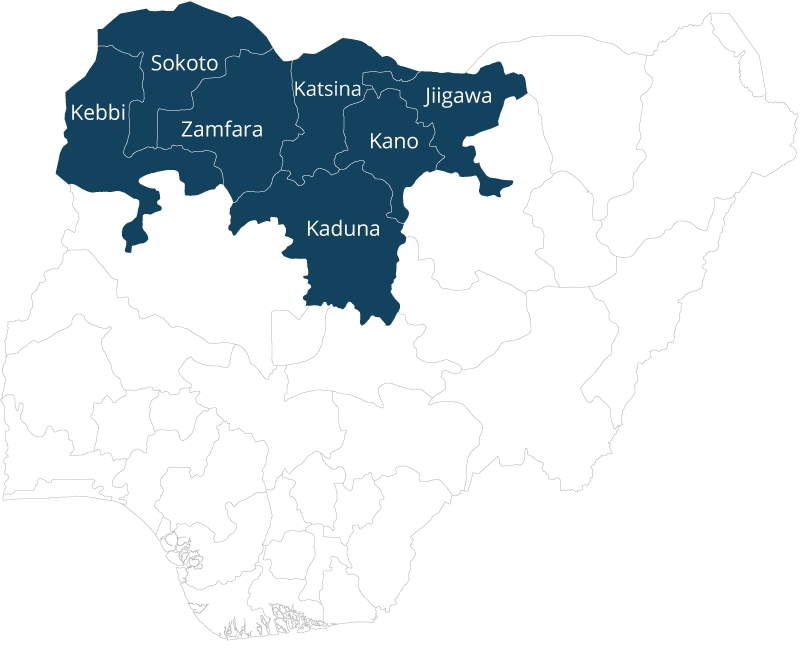
North Central
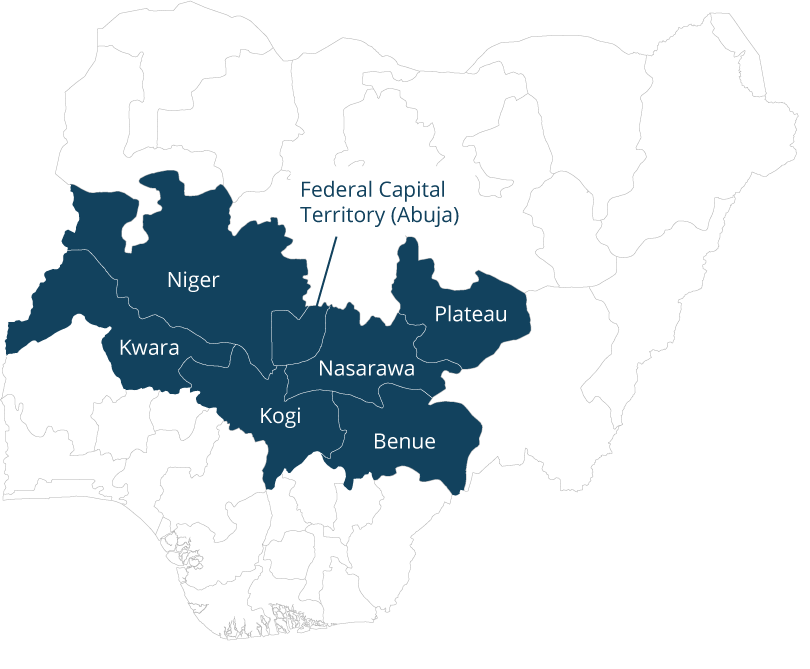
Overall violence subsided across the North Central region, despite some deadly attacks in Benue state. Suspected armed Fulani pastoralists reportedly killed at least three farmers during an attack on 3 February in Ikobi, in Apa LGA of Benue. Other incidents targeting civilians were reported in Bokkos LGA of Plateau state, where gunmen reportedly killed three people, and in the Federal Capital Territory, where nine people were abducted in Monu village on 5 February. In Benue, Fulani gunmen ambushed troops of Operation Whirl Stroke – an operation to counter armed herdsmen and militia groups operating within the region – and injured three soldiers before yielding to the troops. In the capital Abuja, two factions of APC supporters clashed in the party’s national secretariat headquarters over support for a factional leader. Security operatives intervened to disperse the parties.
North East
The Nigerian Army continued counter-insurgency operations against Boko Haram strongholds in the North East. On 6 February, army troops shelled positions held by jihadist militants in Kukawa LGA of Borno state, reportedly killing 42 militants. Other army operations were reported in Damboa and Gwoza LGAs. Internecine fighting between Boko Haram factions claimed several deaths among the ranks of the Islamic State West Africa Province (ISWAP) and the Group for the Propagation of the Prophet’s Teachings and Jihad (JAS). Scores were killed in fighting that broke out in Damboa LGA on 7 February and Konduga LGA on 9-10 February. An estimated 340 militants and their families reportedly surrendered to Nigerian authorities across the North East. Authorities launched Operation Safe Corridor to encourage defections among the jihadist ranks. In election-related developments, suspected members of the Kalare Boys Gang attacked the residence of a chieftain of the Peoples Democratic Party (PDP) in the city of Gombe, as he held meetings with women and youths on 4 February. Five persons were wounded and the house was vandalized before policemen intervened to disperse the attackers. The chieftain claimed the attack was related to his defection from APC to PDP. In Adamawa state, a mob assaulted the convoy carrying the wife of Adamawa PDP Governor Ahmadu Fintiri in Muchalla area.
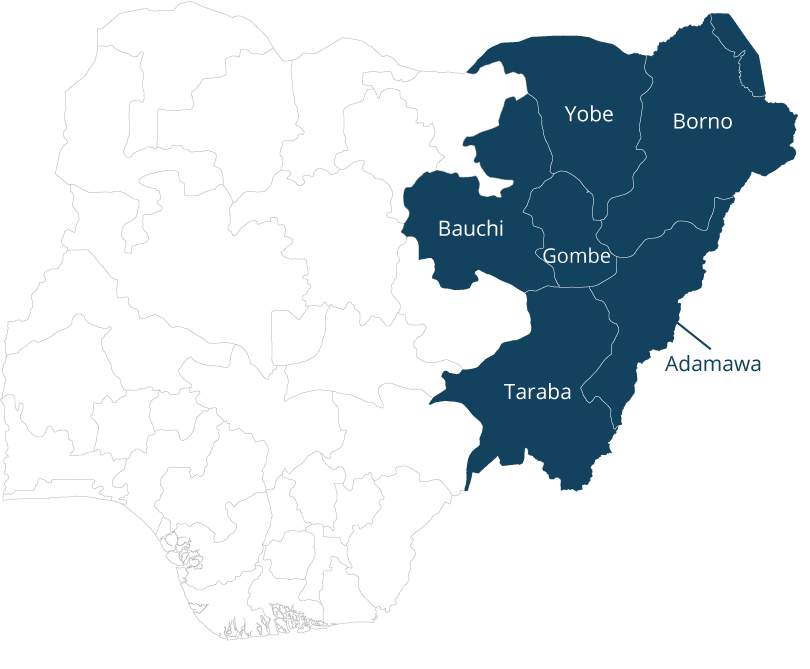
South West
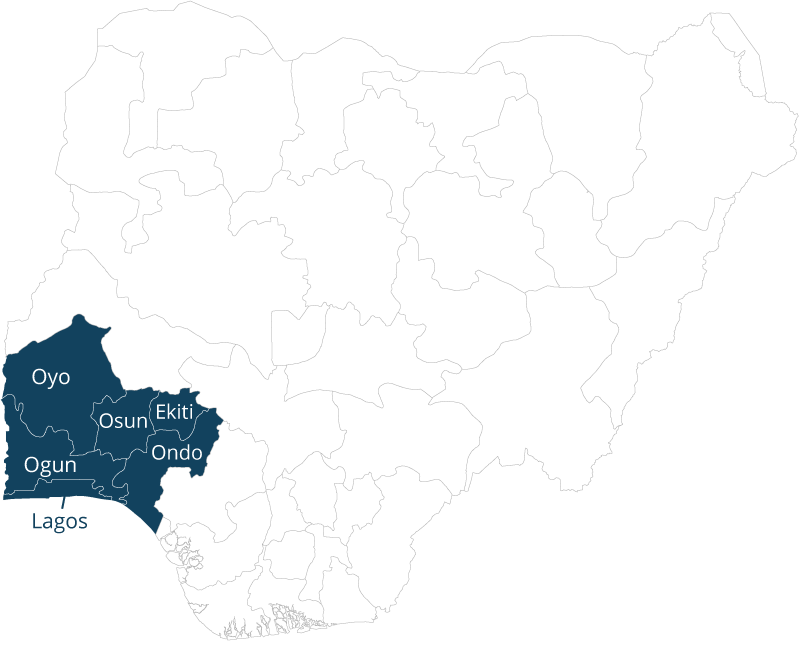
The South West region was relatively quiet during the first half of February. Peaceful protests were held in Ekiti, Ogun, Ondo and Oyo states over the Central Bank’s decision to change the design of Naira notes, price hikes, and fuel shortages. Demonstrations over currency shortages turned violent in Abeokuta and Ibadan, the capital cities of Ogun, and Oyo states, respectively. In Lagos state, members of the Black Axe cult clashed with Eiye cult members on 1 February. Several people were reportedly wounded as the fighting spread from Etegbin to Ajangbadi in Ojo LGA.
South South
Election-related violence was reported in several states across the South South region. In Cross River state, the Commissioner for Women Affairs, Gertrude Njar, was abducted on 1 February in the capital, Calabar. No ransom demands were made public. On 5 February, gunmen ambushed the convoy of the People’s Redemption Party (PRP) gubernatorial candidate in Cross River. Pastor Usani Uguru Usani – a former minister during President Buhari’s first term and current PRP candidate for the governorship – survived the attack, but two people were reportedly killed. Another incident was reported in Port Harcourt, Rivers state, where gunmen in police uniforms shot at the car of Abiye Sekibo, the director-general of the PDP presidential campaign in Rivers state. Sekibo claimed that a campaign venue he was inspecting was set ablaze, and that the assailants were policemen who arrived at the venue with police vehicles linked to the state governor. State police maintained that the assailants were not police officers. Separately, in Delta state, an unidentified armed group ambushed soldiers on patrol on 9 February, reportedly killing four in Ndokwa East. A traditional ruler in the community was also beheaded by the assailants.
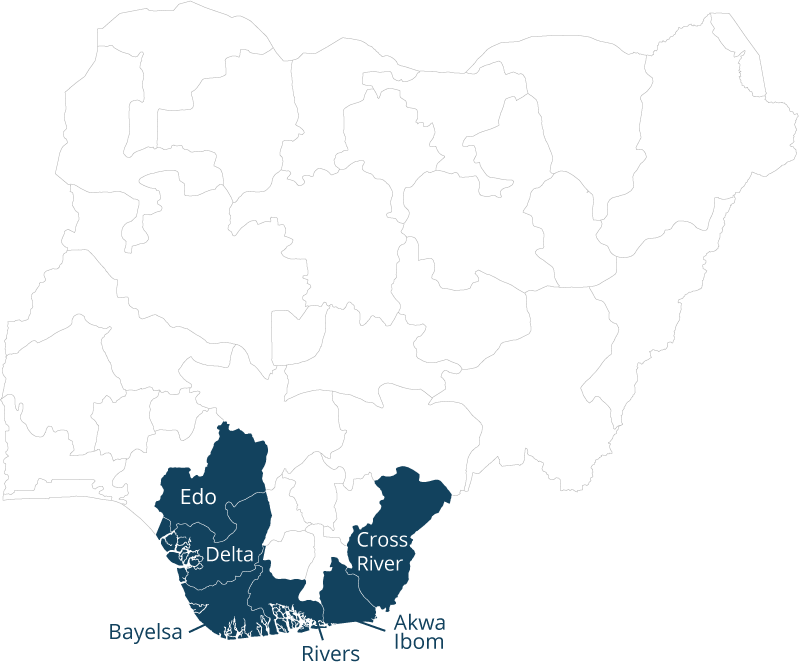
South East
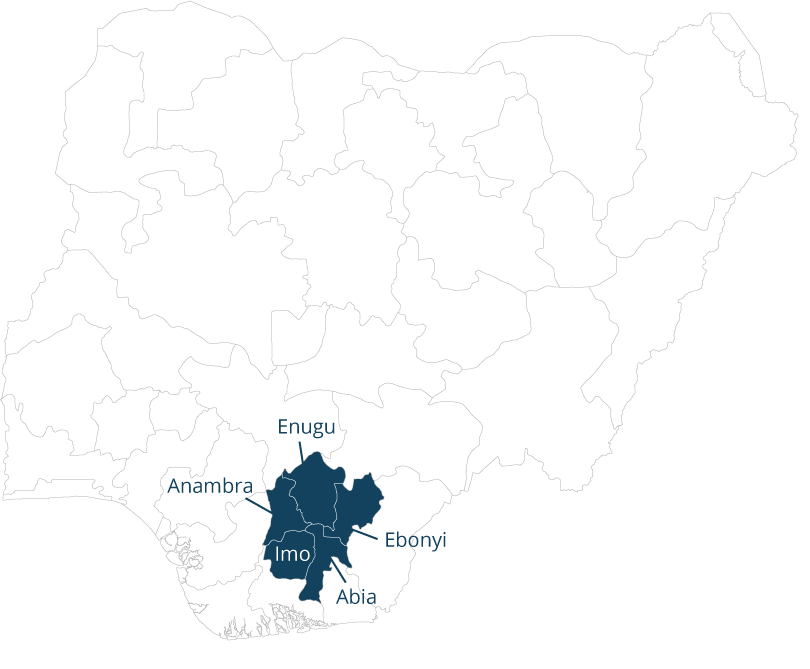
Violence continued in the South East during the first half of February. Anambra was home to the most violent events, driven by reported clashes between communal groups and attacks on civilians, police stations, and electoral offices. On 1 February, an unidentified armed group attacked the office of Nigeria’s Independent National Electoral Commission in Idemili South LGA, destroying 729 ballot boxes, 243 voting cubicles, and 256 election bags. Gunmen ambushed Anambra vigilantes on patrol in Njikoka LGA, reportedly killing three of them and assaulting a police station with petrol bombs. In Ayamelum LGA, at least five people were reportedly killed on 6 February over a boundary dispute that involved members of the Anaku and Omor communities. Elsewhere across the region, suspected Ebubeagu operatives ambushed the convoy of the gubernatorial candidate for the All Progressives Grand Alliance, Bernard Odoh, reportedly killing the driver and a police officer. The local Ebubeagu commander denied the attack. The Ebubeagu security outfit has been accused of operating as a personal militia at the behest of the APC governor of Ebonyi state David Umahi. Moreover, on 14 February, a federal high court in Abakaliki decreed that the Ebubeagu should disband due to its involvement in widespread human rights abuses and extrajudicial killings.




